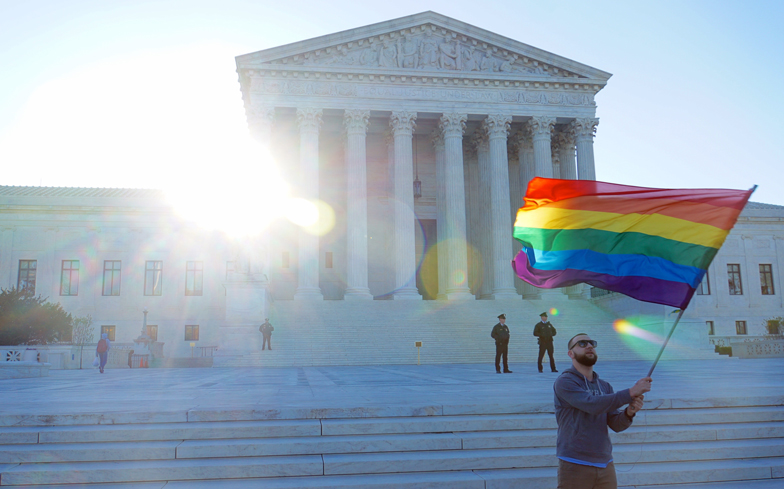
Charles Rhines was sentenced to death in 1993 after he bound and killed and a man, as he robbed a doughnut store in South Dakota.
However, Rhines’s lawyers are now petitioning for a reduction in his sentence to life without parole, after it was alleged that Rhines was sentenced to death by homophobic jurors.
In his petition, it is claimed that at least one juror relied on anti-gay stereotypes to sentence Rhines, and that he was sentenced to death because it was thought that he would “enjoy prison” because of his homosexuality.
The petition also states that since the original conviction, three jurors have come forward and said that Rhines’s sentence was because of his homosexuality.
One juror said that other jurors “knew that [Rhines] was a homosexual and thought that he shouldn’t be able to spend his life with men in prison.”
A second juror added that another juror had said: “If he’s gay we’d be sending him where he wants to go.”
The third juror said that there were lots of discussions about Rhines’s homosexuality, and said that there was “a lot of disgust” surrounding it.
Rhines’s conviction had already been appealed in 1993, but the case was reopened last year after the ruling of Peña-Rodriguez v. Colorado. This ruling meant that states had to consider jury bias against certain races, and Rhines’s lawyers are arguing that this should also be used in the case of bias against a sexual orientation.
The Supreme Court was due to announce their decision last Thursday, but they have not yet done so.
Earlier this month, the Supreme Court ruled in favour of a baker who had refused to bake a wedding cake for a gay couple in a 7-2 ruling.
Announcing their decision, Justice Anthony Kennedy said: “The Colorado Civil Rights Commission’s consideration of this case was inconsistent with the State’s obligation of religious neutrality.
“The reason and motive for the baker’s refusal were based on his sincere religious beliefs and convictions.”
Kennedy added: “When the Colorado Civil Rights Commission considered this case, it did not do so with the religious neutrality that the Constitution requires. It is proper to hold that… the Commission’s actions here violated the Free Exercise Clause; and its order must be set aside.”




